When we brought our dachshund puppy Django home in 2015, he had 28 razor sharp puppy teeth. Like a human baby, Django explored the world by putting objects into his mouth. Although we (Mike and Steph) always tried to direct Django's chewing energy towards puppy-safe chew toys, Django would put things in his mouth and chew on items he wasn't supposed to. Since Mike and I were a part of his world, he inevitably started nipping and biting our fingers, hands, and toes.
While mouthing is completely normal during puppyhood, it is important to let your puppy know what is and what is NOT allowed to be chewed on. Why do puppies gnaw on everything? How do you keep your dog from biting you? Are there outdated training techniques you should avoid? When should you seek professional help for your four-legged friend?
We spoke to Denise Harmon, the founder of Brooklyn-based dog training and consultant company Empire of the Dog, for tips on preventing puppy nipping and biting. Here is everything you need to know.
WHY DO PUPPIES BITE?
“Your puppy has a biological need to chew. It's actually something that he needs to do and should have an outlet for his entire life,” says Denise Harmon. “You should give him four to five hours per day to chew.”
Here are three reasons your puppy bites:
- Puppies that are under 6 months tend to explore the world with their mouths. When your puppy bites an object, he receives information about how hard it is, what it tastes like, and whether to keep biting it.
- At 8 weeks of age, your puppy’s milk teeth begin to fall out, and 42 adult teeth erupt through his gums. During this time, he will chew on anything to reduce his teething pain. If you have a short-nosed or small dog breed, his baby teeth may take longer to fall out.
- Puppies mouth littermates to get them to play. When they nip at each other, they learn to control how hard they can bite before their sibling yelps (which means, “Hey, that hurts!”) and stops playing.
TEACH YOUR PUPPY BITE INHIBITION
When your puppy bites you, he is not challenging your “alpha” dog status. He is just playing and does not know that his bite strength is between 250 and 325 pounds per square inch. Here is what you should do when your puppy bites you or other members of your family:
- Allow your puppy to mouth on your hand during playtime. When he bites your hand too hard, let it go limp and then make a high-pitched yelp.
- If yelping causes your puppy to get excited or bite harder, say “Too bad!” or “You blew it!” in a firm but even tone of voice.
- This should startle your puppy, causing him to temporarily stop biting you. Praise him enthusiastically and then give him a treat.
- Continue playing until he bites you hard again. Then yelp or say “Too bad!”. You can repeat this exercise three times within 15-minutes.
PUT YOUR PUPPY IN TIME-OUT
If you find that puppy-style yelping or verbal corrections do not work, you can switch to a time-out procedure. Here's how this works:
- When your puppy bites you too hard, let out a yelp or say “Too bad!” When he turns to look at you or looks around, remove your hand.
- Ignore your puppy for no more than 15 seconds. If you wait too long, he will forget what happened, and time-out simply becomes a change in scenery.
- If your puppy tries to bite you again, turn around and tuck your hands into your armpits. This teaches your puppy that no one will play with him if he bites too hard.
- Your puppy may cry, bark, or scratch at the door to let you know that he is unhappy during his time-out. If this behavior is hard for you to ignore, go behind a baby gate or closed door. Once your puppy is completely calm, encourage him to play with you again.
- If your puppy sinks his teeth into your skin, do not pull away. Take him by the collar and hold still. Do not talk, touch, or look at him. If he will not calm down, immediately take him to his crate or a safe space. Do not be dramatic. You are not angry, and he is not in trouble. Release him after 10 to 15 seconds.
- Repeat the sequence above for your pup’s hardest bites. As those disappear, do the same for his next-hardest bites, and so on, until he can mouth your hand with little to no pressure.
PREVENT YOUR PUPPY FROM POUNCING
Herding dog breeds (e.g., Australian shepherds, border collies, and Pembroke Welsh corgis) are more likely to try to gather, herd, and protect their humans and other household pets. They are also most likely to nip at your feet and socks.
If your dog nips at your feet or ankles when you are walking, teach him the “find it” command. Whenever he ambushes you, immediately stop moving. Then toss a high-value dog toy or dog treat on the ground and say, “Find it!” Throw treats until your puppy is either too tuckered out to nip at you, or you can redirect his attention with a durable chew toy.
One more tip? Fill plastic containers with bite-sized treats. Place them in every room of your house, so you always have access to a treat when your dog starts nipping.
PUPPY INTERACTIONS WITH YOUNG CHILDREN
Do not let your child play on the ground at your dog's eye level. According to the CDC, 64.9 percent of dog bite injuries among toddlers are to their head or neck. For extra security, exercise your puppy for at least 5 minutes for each month of age before allowing your puppy and small child to interact.
Consider using a dog-friendly playpen or gate to separate your puppy and child as needed. Supervise play sessions, so you can step in if things get out of control. Consider using a flirt pole or stuffed Kong dog toy to create a positive association between your child and pup.
PUPPY TRAINING TECHNIQUES YOU SHOULD AVOID
- Avoid dominance-based dog training. Do not pinch your puppy’s paws, hold his mouth closed, pin him on his back, push his cheek into his mouth so he bites himself, or shove your thumb down his throat.
- If you use your hands to punish your puppy, he may become hand shy. Whenever anyone reaches out to touch him, he may whine, cower, or duck out of the way. Your pup may also bark, growl, snap, or bite to keep people away. Your hands should be associated with pleasant things like petting, cuddling, and giving dog treats.
- According to a 2009 study in Applied Animal Behavior Science, 20 percent of dogs are aggressive after being squirted with a water bottle. If you spray your pup with water whenever he bites you, he could end up with an intense fear of water (aquaphobia). He may also become terrified of any kind of bottle. If the punishment occurs when he bites a specific person, he may become fearful or aggressive every time that friend comes over.
- Avoid anti-chew sprays like Grannick’s Bitter Apple Spray or Veterinarian’s Best Bitter Cherry Spray. “You're not physically hurting your puppy, but are you going to spray your whole house with that?”, Harmon says. “Your dog has to fill the void by figuring out, 'What am I allowed to bite?'". Anti-chew sprays may also contain rubbing alcohol, which is considered toxic to dogs even in small amounts.
WHEN TO GET YOUR PUPPY PROFESSIONAL HELP
Consider hiring a certified dog trainer if your puppy:
- Stiffens and stares without blinking before biting
- Barks, growls, or bites while guarding his toys, bones, or food/water dish
- Snarls, air-snaps, or nips when a stranger enters your home
- Bites you hard enough to draw blood
Some dogs are aggressive because they have a medical condition. Before you find professional behavioral help, check with your veterinarian to make sure your puppy is in good health.
BEFORE YOU GO
If you have any questions about nipping or biting or want to share one of your own puppy experiences, please leave a comment below. We would love to hear from you!
Also, if you are in New York City and looking for a very talented dog trainer, consider Empire of the Dog in Williamsburg, Brooklyn. We did obedience training with Denise Harmon when Django was a puppy and highly recommend her as a dog trainer and training consultant. She's an incredibly skilled, experienced, and talented trainer for dogs of all ages and breeds.

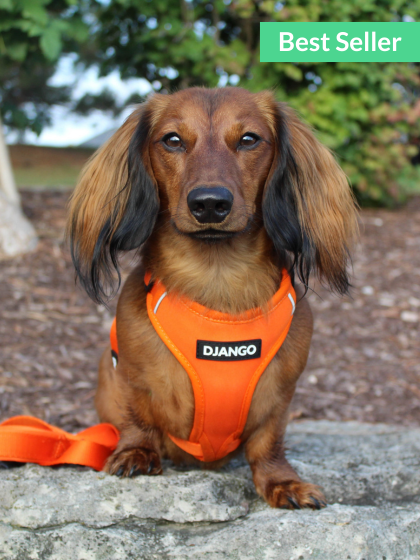
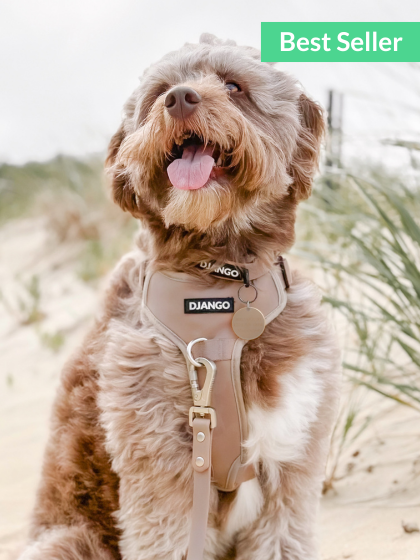
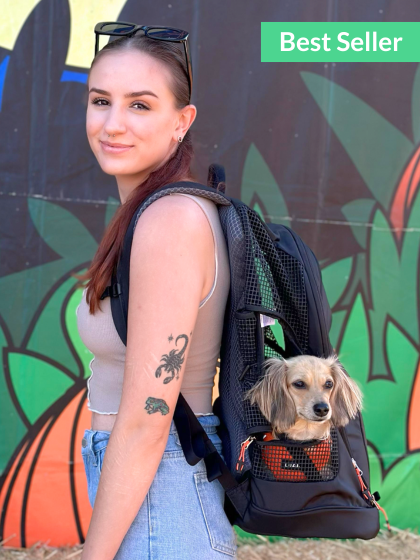
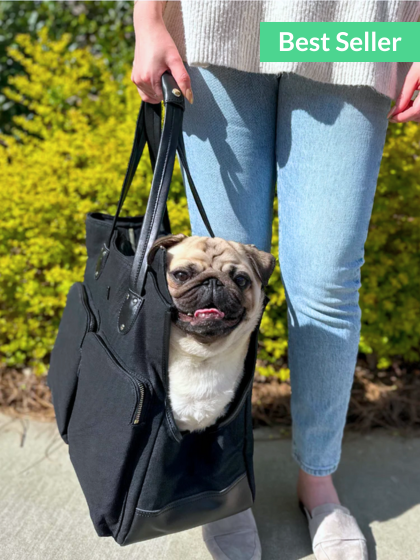
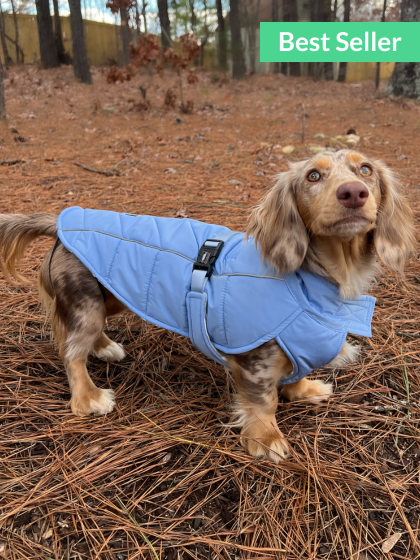
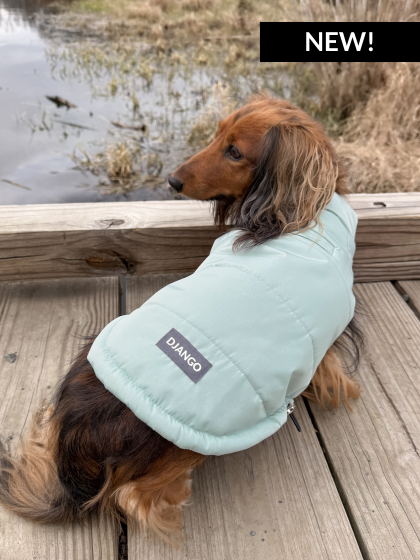
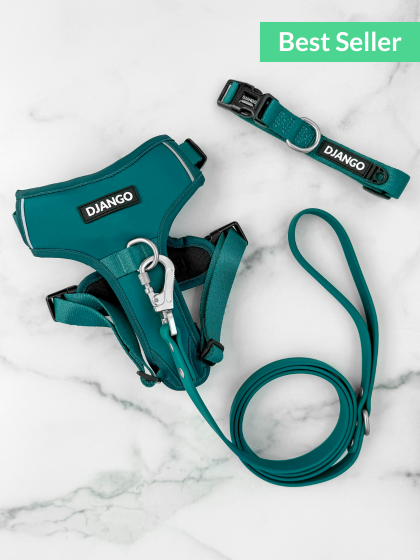
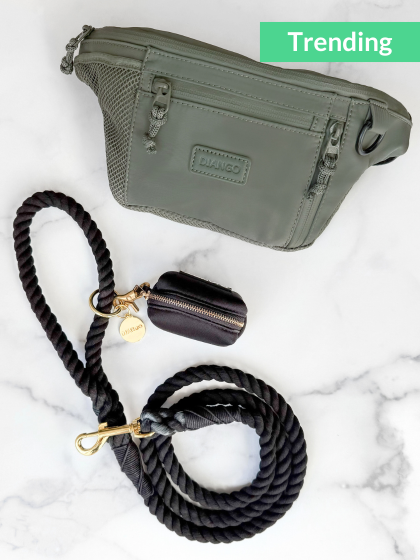
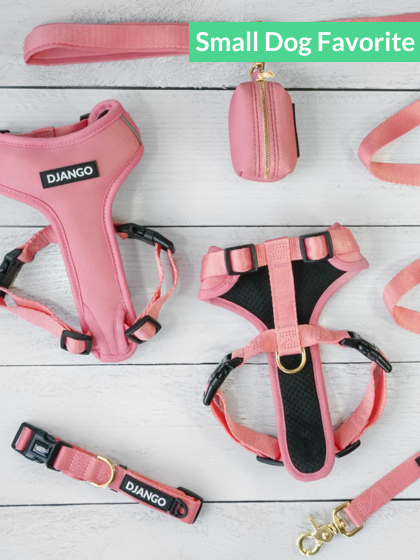
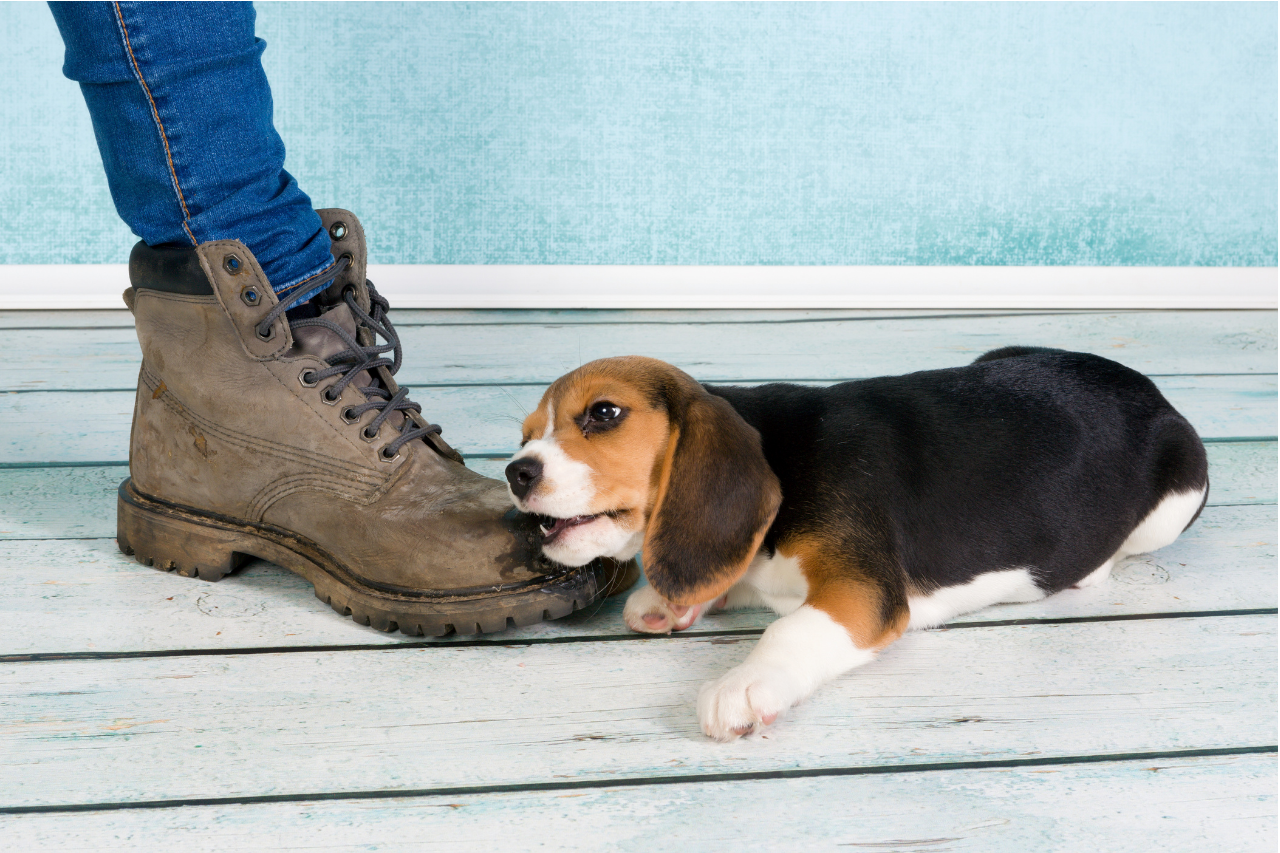
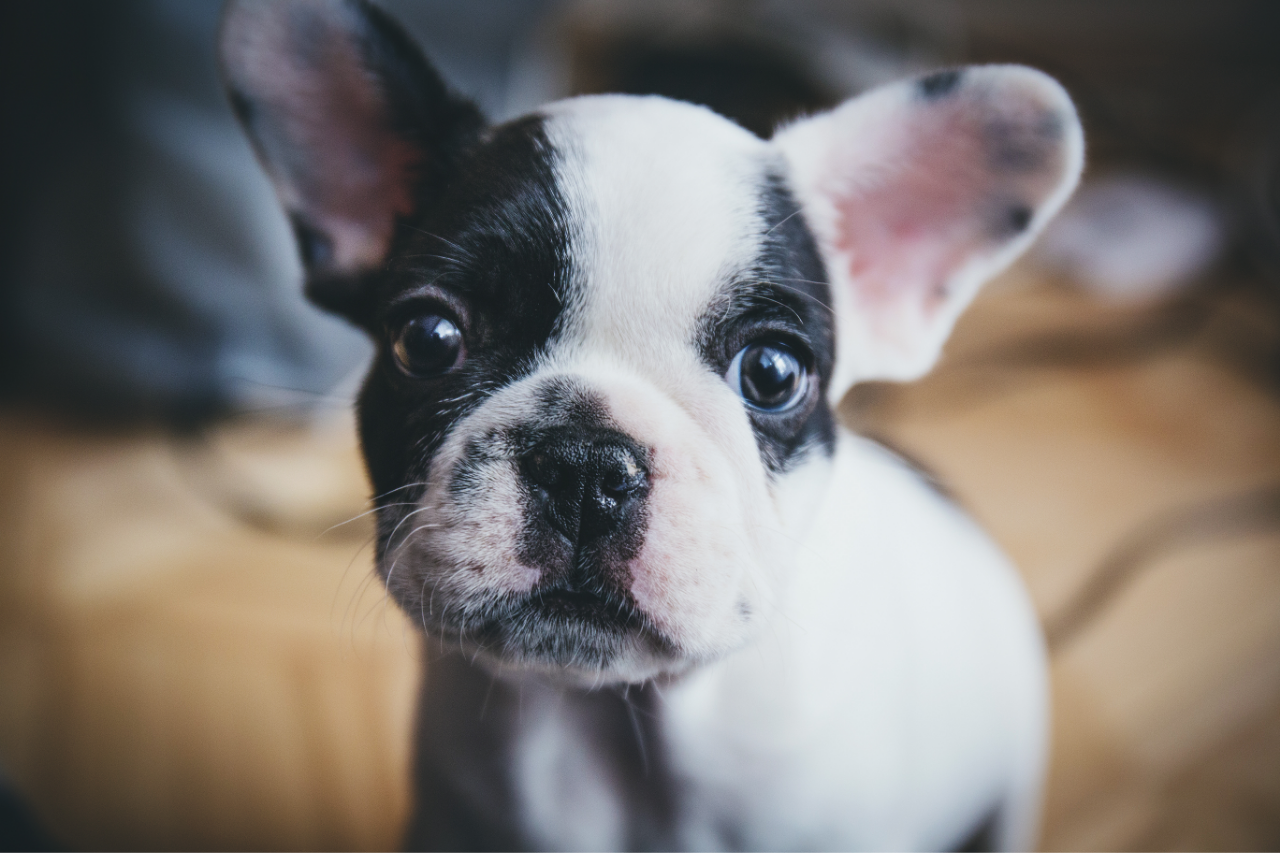
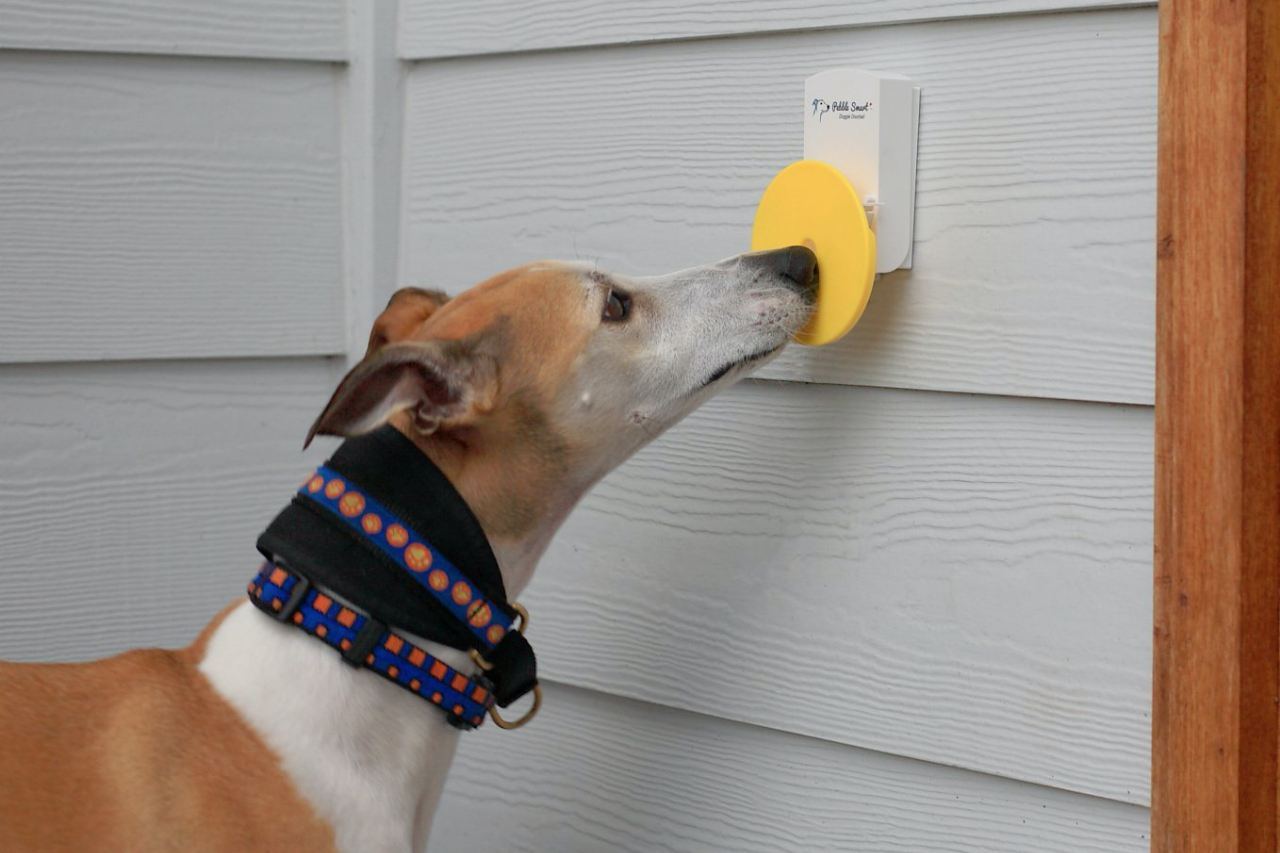
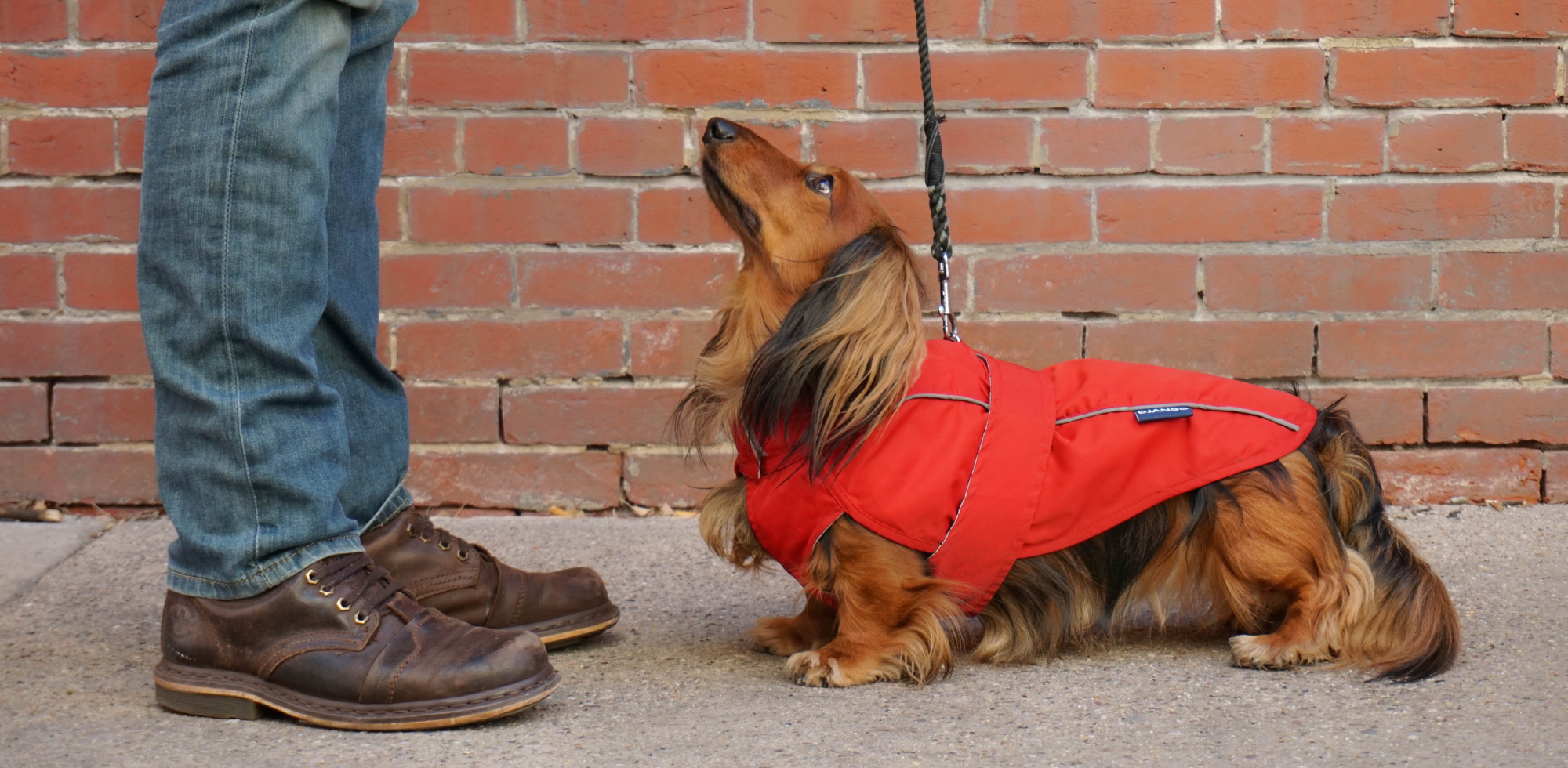
1 comment
Karen
I am in desperate need of help with my puppy, Cammie Ann. But, I’m a disabled senior and I just can’t afford to purchase your training course. Is there anything you can do to help me? She still pees in the house, and she bites and jumps on me at times making me loose my balance. And she’s very aggressive towards my cat. Anything, tips, video, anything will be so greatly appreciated. Thank you ❤️
I am in desperate need of help with my puppy, Cammie Ann. But, I’m a disabled senior and I just can’t afford to purchase your training course. Is there anything you can do to help me? She still pees in the house, and she bites and jumps on me at times making me loose my balance. And she’s very aggressive towards my cat. Anything, tips, video, anything will be so greatly appreciated. Thank you ❤️